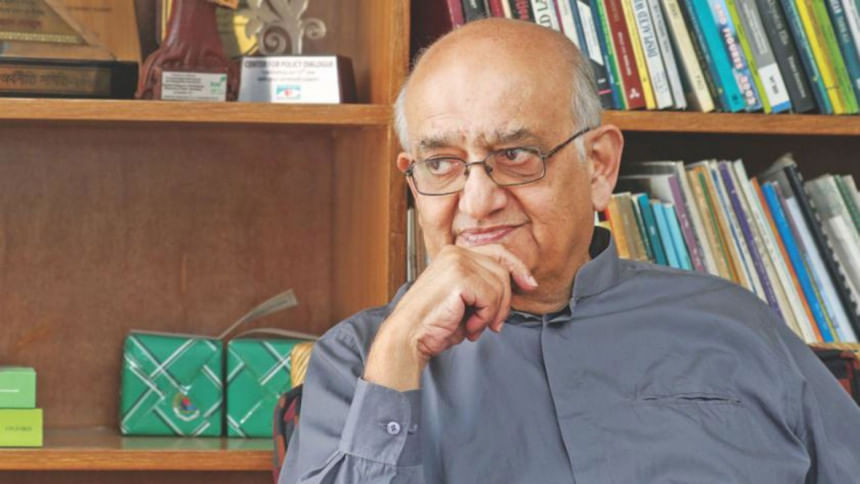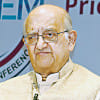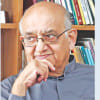High profitability lured businessmen to become MPs: Rehman Sobhan

The electoral system in Bangladesh has fallen victim to "elite capture", driven by the high profitability associated with participating in politics and being elected as members of parliament (MPs), said Professor Rehman Sobhan, chairman of the Centre for Policy Dialogue (CPD).
As a result, 70 to 75 percent of MPs in the last parliament were businessmen who leveraged their political authority for personal business interests, he added.
Prof Sobhan made these remarks during a public lecture at the four-day annual conference organised by the Bangladesh Institute of Development Studies (BIDS) at Hotel Lakeshore in Gulshan today.
"Crony capitalism has become a universal problem, deeply embedded in the political system. It extends beyond the parliament and has spread to the upazila and union levels, where political elites have taken on the role of 'rural zamindars'," he said.
Also, power is increasingly concentrated in the Prime Minister's Office, and the principal political parties operate under undemocratic systems, with power concentrated in the hands of a few political leaders.
"This is an inherent structural problem within the political framework, which has also manifested in the administrative system," Prof Sobhan added.

 For all latest news, follow The Daily Star's Google News channel.
For all latest news, follow The Daily Star's Google News channel. 








Comments